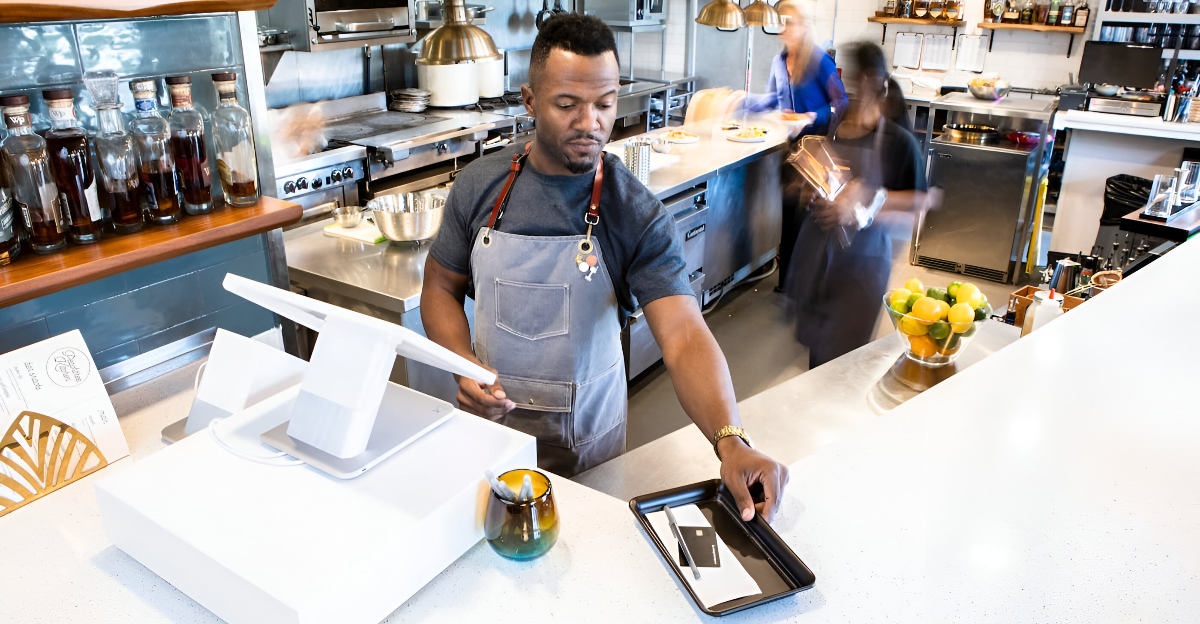
Tipping culture in the United States has been debated for years. Rewarding service staff for a well-done job has escalated into guilt-tripping and a lack of corporate accountability.
According to a Pew Research report, 66% of Americans dislike tipping expectations. So how do we solve this issue?
Below are nine solutions that could improve the tipping culture in America.
The Nitty Gritty of Tipping

But first, we should understand how and why tipping systems operate the way they do in the US. The tipping system is legally supported by the Fair Labor Standards Act of 1938.
This system actively shifts the responsibility of paying service workers like waiters and waitresses onto the consumer and away from the employer. Employers can pay tipped workers as little as $2.13/hour federally.
Theoretically, these employers are supposed to fill in the gaps if workers do not receive enough tips to cover minimum wage, but this is seldom implemented.
This system clearly has some gaps that need to be filled.
Solution #9 – Legislative Reform on Mandatory Fees

Many establishments require a service charge to be added to bills, which is an unfair expectation for customers. Most States do not have explicit laws prohibiting these hidden fees, and reform is necessary.
States should start requiring an explicit description of ALL charges on bills so that these inflated gratuity charges do not blindside customers. Michael Lynn, Tipping Expert at Cornell University, said, “Service fees work if they’re honest. Customers hate mystery charges.”
Solution #8 – Hybrid Models (Tips + Living Wage)

Sometimes you eat at a restaurant and your server is incredibly kind, helpful, friendly, and deserving of a reward-based tip. So why not have the best of both worlds? Restaurant owners can pay their staff a minimum wage, and customers can add a tip reward if they choose.
This is typically the system in European countries and other parts of the world. Companies that have tried this hybrid method have reported happier staff and higher customer satisfaction scores.
Solution #7 – Worker Advocacy & Unionization

Workers in the service industry often have less bargaining power than workers in other professions. Many of these employees fear that being vocal or asking for an increase in their wages would result in termination.
This is where unionization and advocacy groups like One Fair Wage can step in. They can act as a voice for these workers and negotiate higher base pay and fair tip-sharing policies.
However, unions aren’t very popular with business owners, who claim that they could drive up operations’ overall costs.
Solution #6 – Consumer Education Campaign

Confusion is one of the central factors that has adversely impacted tipping culture in the US. Many consumers don’t understand the wage laws surrounding this and often feel guilted or obligated to tip.
Public campaigns can help raise awareness around these issues and provide much-needed insight into how tipping culture operates. Educating the public about how underpaid frontline workers are can even pressure policymakers to make some adjustments.
Solution #5 – Tech Redesign: Stop Guilt Prompts

Most of us have experienced going to a retail counter and being confronted with an iPad suggesting you input a 20%, 25%, or even 30% tip for a takeaway you haven’t even ordered yet.
Customers should be able to decide how much to tip or even if they want to tip at all for their takeaway coffee and bagel order. Default tip prompts shouldn’t be applied to retail counters; they should be exclusive to service-based transactions only. If restaurants must use these tech prompts for tipping, a message like “Your server earns a full wage—tipping is optional” would go a long way.
Solution #4 – Flat Pricing Models

Restaurants could implement higher prices on their menu to compensate for paying their servers a flat, livable wage. This would mean customers would have to pay more for their meals, but they wouldn’t be pressured into tipping or experience any hidden gratuity charges added to their bills.
Plus, service staff would receive a stable wage and benefits and would not have to rely on customer moods and generosity.
Danny Meyer, Union Square Hospitality, said, “Hospitality-included pricing improves morale and stability. It’s the future.”
Solution #3 – Mandatory Wage Transparency

When you tip your server for doing a great job, you assume they receive the full amount you gave them. However, this isn’t always the case. Some restaurant owners keep the tips for themselves to offset costs, or in other cases, tips are pooled and split among all workers.
Implementing a policy similar to the UK’s Employment (Allocation of Tips) Act 2023 would force restaurant owners to disclose how tips are allocated. It could ensure that 100% of tips go directly to the intended workers.
Solution #2 – Look Abroad for Inspiration

In countries like Japan, tipping is often considered rude. Businesses must pay their staff livable wages; therefore, the burden is not put onto customers.
This does not negatively impact service quality; it offers workers fair wages and satisfaction, and customers get transparent pricing with no hidden costs.
Should the US take a page from Japan’s book and move toward a no-tip culture?
Solution #1 – Abolish the Tip Credit

The “tip credit” loophole is outdated and detrimental to service workers. This loophole allows businesses to legally pay their staff as little as $2 or $3 an hour based on the assumption that tips will bring this amount up to minimum wage.
States like California, Oregon, and Washington have already ended this outdated practice, and studies show workers in these states report less harassment and better financial security.
Now we need this to be rolled out nationwide.
Conclusion

The US tipping system has existed for decades, and these solutions won’t magically solve these issues overnight. However, it is important to have these conversations and spread awareness about the imperfections in this system.
The goal here isn’t to completely eliminate tipping. The goal is for workers to be paid fairly and for consumers to be free from pressure, guilt, and confusion surrounding tipping expectations.
